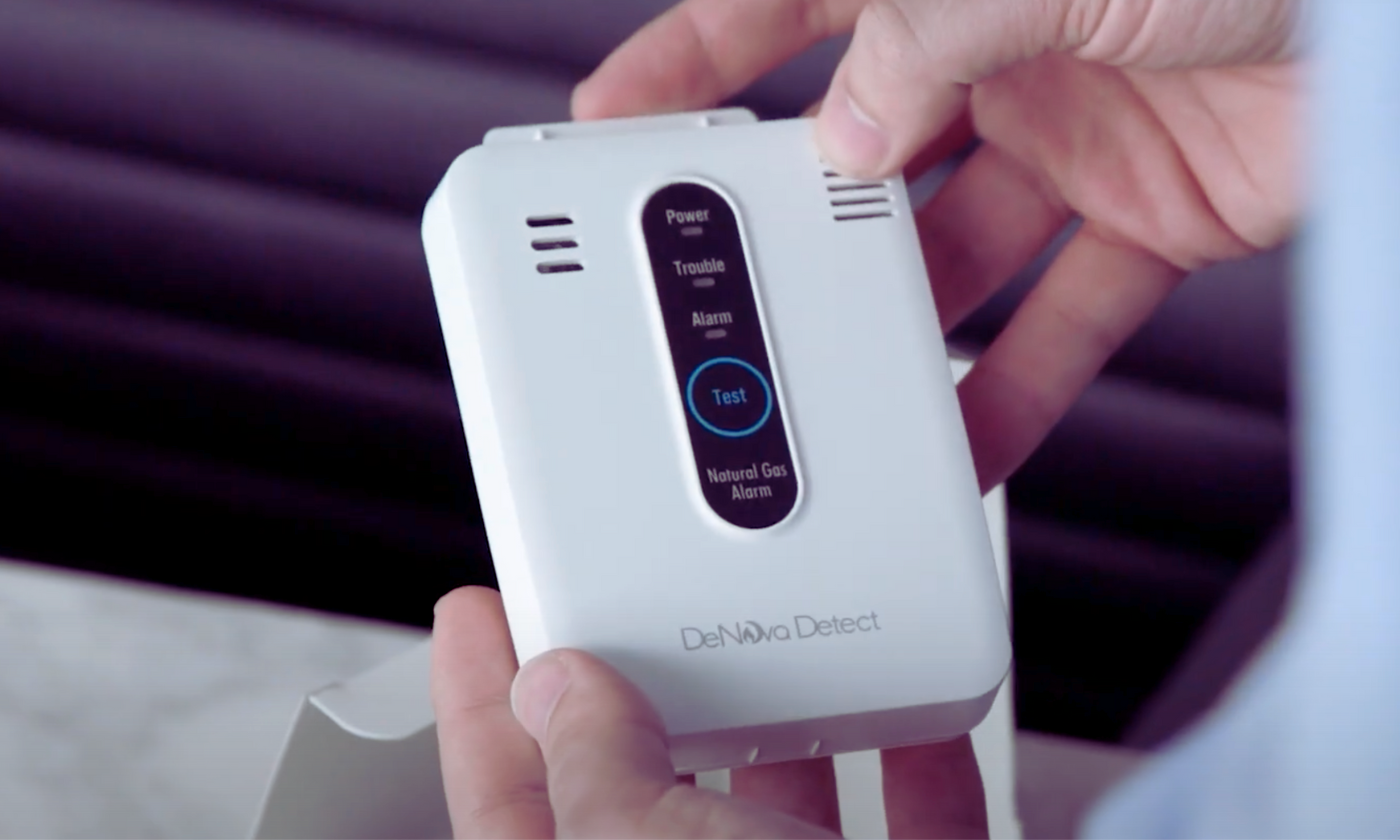Whether relaxing within your home or out and about, ensuring the safety of your home and loved ones is a top priority, especially when using natural gas.
Natural gas has been viewed as a versatile energy source for several decades with many applications, including heating buildings, generating electricity, powering vehicles, and fueling industrial processes. Natural gas is popularly used in appliances like stoves, water heaters, and furnaces in residential homes. It’s also considered a cleaner burning fossil fuel than coal and oil, as it helps reduce greenhouse gas emissions and air pollution.
However, as common as natural gas is inside homes, it can pose serious risks if not used and maintained properly. To keep using natural gas safely and efficiently and prevent natural gas leaks, it’s a smart idea to purchase and install at least one natural gas alarm in your home. It may be easy for people to assume that since they’ve gone this long without a natural gas detector, then it’s all good. But, a natural gas explosion occurs every two days in the US.
Based on these statistics, you don’t want to put yourself at risk. So, it’s vital to truly understand the potential dangers natural gas can bring and how a gas alarm can truly keep you safe.
The Dangers of a Natural Gas Leak
Natural gas leaks can be dangerous because they can lead to fires or explosions. Approximately 4,200 home fires per year are started by the ignition of natural gas, causing about 40 deaths and 140 injuries yearly. Minor leaks and damaged pipes balloon into serious issues as many go unreported or unrepaired for years. Additionally, as a highly flammable gas, even a tiny spark or ignition source can quickly lead to a dangerous blaze.
If a gas leak is present, the natural gas can displace the oxygen in the air and create an oxygen-deficient environment. Prolonged exposure to gas leaks can cause physical symptoms like burns and skin irritation, dizziness, nausea, headache, fatigue, difficulty breathing, and even carbon monoxide poisoning.
To prevent any harmful, long-term side effects from gas leaks, you must know how to detect the signs of a leak.
How to Detect a Gas Leak in Your Home
Knowing the danger of the gas leak is one thing, but knowing how to monitor them is another. You won't be very good at monitoring if you don't think it is necessary. Even without a natural gas detector, there are a few telltale signs that you could have a gas leak.
- The smell of sulfur or rotten eggs
- A hissing or whistling sound near a gas line
- A dusty or white cloud near a gas line
- Bubbles in standing water
- A damaged gas pipe
- Dead houseplants
If you notice any of these signs or experience any of the symptoms mentioned earlier and suspect a leak, NEVER:
- Use a phone inside the home
- Search for the source of the leak
- Attempt to repair the leak
- Switch lights or household appliances on or off
- Use lighters, candles, matches, or other ignition sources
- Keep doors and windows closed
- Allow the situation to go unreported
You should instead follow these steps to stay safe for your protection and that of other individuals in the household.
Evacuate the area: Everyone in the home should leave immediately and regroup a safe distance away to limit exposure to gas.
Open windows and doors: If it is safe to do so, open windows and doors for ventilation and allow fresh air to circulate.
Call and wait for help: Call your gas company or emergency services from a safe location to report the suspected gas leak. Do not attempt to turn off any gas valves yourself. Avoid using any gas appliances until a qualified professional deems it safe to do so.
Does this seem like a lot to keep on your mind? It is. The safety of your family and home always comes first. For extra security (and the ultimate peace of mind), install a natural gas alarm to help you better prepare and prevent a natural gas emergency.
The Benefits of a Natural Gas Detector
When it comes to natural gas safety, time is of the essence. You should take the needed steps to secure your home’s security, and a natural gas detector will provide that extra layer of protection. It’s the easy solution.
Simply put, a natural gas detector detects explosive gas and prevents explosions and fire disasters, thus saving human lives.
If the concentration of natural gas in the air reaches more than 10% lower explosive limit (LEL), the detector will sound an alarm to alert occupants of the danger. The DeNova Detect alarms offer even more security by eliminating false alarms caused by harsh household chemicals, such as laundry detergent, disinfectant spray, aerosol hairspray, furniture polish, and so on. So when the alarm sounds, you’ll know it’s the real deal.
While most natural gas detectors are approved to meet certain standards, some perform better in different situations, depending on their response time, rugged design, and durability. When choosing the right one, there are several important factors to consider.
Sensor life, warranty, the total cost of ownership, and other specs are also important to understand what your potential gas alarm will bring to the table.
By following proper safety guidelines, such as installing and maintaining natural gas alarms, having gas appliances inspected regularly, and addressing gas leaks promptly, you can help ensure your and your family's safety.
Related post: How to Make Your Smart Home More Intelligent With the Right Natural Gas Alarm
The Importance of Natural Gas Detector Maintenance
Like any other device, it’s important to test your gas detector regularly to ensure it functions properly. It is always important to follow the manufacturer's instructions on how to test your specific natural gas detector.
Always ensure your gas detector is functioning. Without proper maintenance, your gas alarm could fail to alert you to an emergency—and that’s not a risk anyone can afford. But with proper installation of a natural gas alarm, your family and home will be protected, and you can still enjoy all the benefits of natural gas appliances.





Leave a comment
This site is protected by hCaptcha and the hCaptcha Privacy Policy and Terms of Service apply.